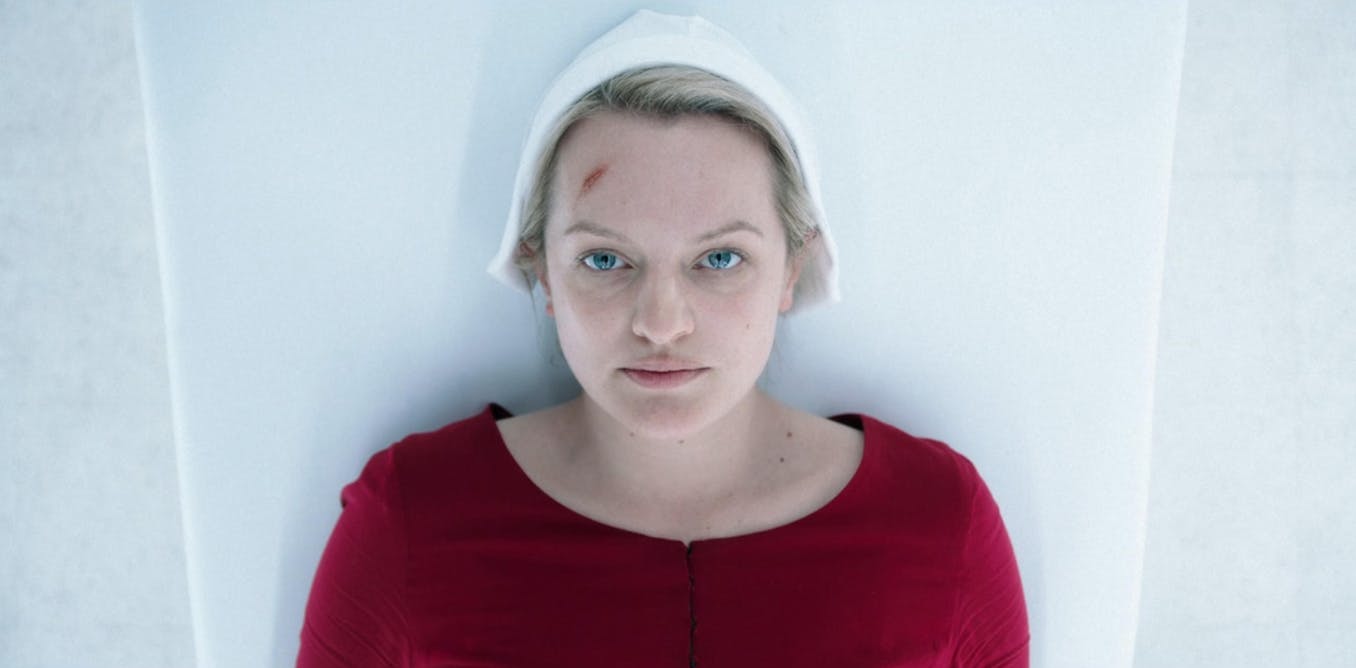Now Reading: Why Hulu’s The Handmaid’s Tale failed as feminist television
-
01
Why Hulu’s The Handmaid’s Tale failed as feminist television
Why Hulu’s The Handmaid’s Tale failed as feminist television

Beware: spoilers for all seasons of The Handmaid’s Tale ahead.
The Hulu adaptation of Margaret Atwood’s iconic 1985 feminist novel, The Handmaid’s Tale, has concluded. The show delves into the oppression of women in the fictional future state of Gilead. Interestingly, the series first aired in 2017, following Donald Trump’s election, and its final season coincided with his term as President.
The handmaids’ distinctive red cloaks and white bonnets have become symbols of resistance at women’s rights demonstrations worldwide after Trump’s election. While the adaptation has been well-received, it has been argued that it misinterprets Atwood’s feminist dystopia, reinforcing views that feminist writers have long criticized.
One major critique is the idealization of white biological mothers in the series, while portraying other female characters negatively. Here are three instances where this occurs:
Childless women are depicted as bitter or cruel figures, unlike in Atwood’s novel where the focus is on the horrors faced by the handmaids. The show elaborates on maternal loss and the desire to have biological children, portraying infertile, older, or adoptive mothers negatively like in traditional fairy tales.
The series emphasizes the importance of fertility and motherhood, evolving into a dark maternal drama where characters’ moral value is linked to their ability to bear children. Characters like Aunt Lydia and Serena are central figures with detailed backstories that differ from the novel’s approach.
The show also promotes intensive, “natural” mothering practices, putting pressure on new mothers. Biological mothers like June and Janine are portrayed as adept at mothering, while adoptive mothers struggle and resent their roles.
Black women are marginalized in the series, with white characters taking the spotlight. Black characters like June’s husband and friend have minimal roles, and black Marthas are sacrificed for the main characters’ goals. Rita, the Martha in June’s household, is one of the few black characters with a consistent presence, but her role diminishes as the story progresses.
While The Handmaid’s Tale is a captivating female-centric drama, it has been accused of prioritizing the rights of biological mothers over women’s reproductive choices, diverging from Atwood’s original critique of forced impregnation. The series’ focus on an idealized view of white mothers has been seen as oppressive to many women.






